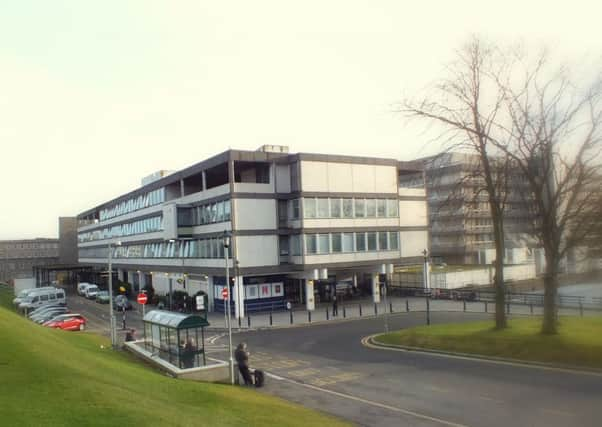ARI nurse: Patient died after botched brain surgery


Anne Croft left her job with NHS Grampian when her concerns about cleanliness in operating theatres resulted in disagreements with surgeons.
She was told by four doctors at Aberdeen Royal Infirmary that she was “incapable of doing her job” after she queried numerous issues during operations.
Advertisement
Hide AdAdvertisement
Hide AdMrs Croft was eventually signed off with work-related stress and now claims she was forced to resign after her concerns fell on deaf ears.
She claims senior staff believed she was slow in starting the day’s operations and delayed procedures with “excessive scrutiny” of surgical instruments.
The former nurse, who worked in theatre for almost 40 years, has now taken the health board to an employment tribunal in Aberdeen.
Giving evidence yesterday, Mrs Croft cited one example in which she claimed that a patient had not been marked properly before an operation, leading to a tragic surgical error .
She said: “We had a patient a number of years ago who had the wrong side of his brain operated on and he died.”
The nurse added that during her time at the health board people were still coming into theatre without details of their procedure being marked properly.
She claims the behaviour of certain staff at ARI left her feeling she had no alternative but to hand in her notice. She is suing NHS Grampian for loss of earnings as she has not been able to regain work as a nurse since.
During the first day of the hearing on Monday, Mrs Croft, from Carnoustie, said she was not happy to go ahead with brain surgery following the discovery of a “contaminated” surgical instrument tray. She said she had spotted dried blood, bone fragments and fluff around the tools. But after voicing her concerns the tray was examined and surgeons agreed they were happy to proceed.
Advertisement
Hide AdAdvertisement
Hide AdThey said the “contaminated” tools posed less of a risk than not proceeding with the tumour removal. Yesterday, under cross examination, Mrs Croft said she found small “specks” on trays of equipment “a number of times”. This meant that operations had to be delayed for a short time. She added: “I didn’t know if they were blood. Nobody did. We wanted to get this sorted before it went into a patient’s head.”